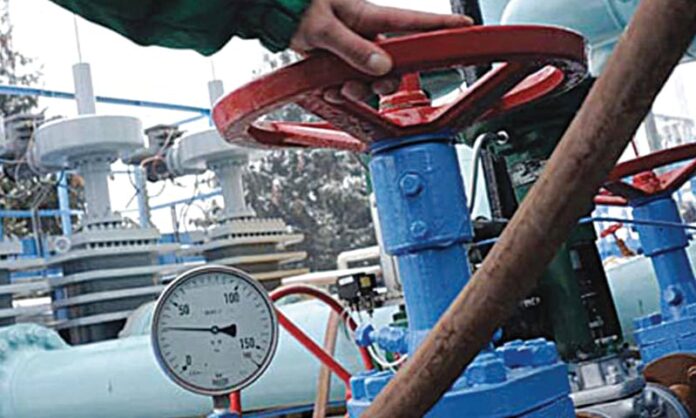The federal government was responsible for the shortage in gas supply in Sindh, claimed Sindh Information Minister Saeed Ghani on Saturday, refuting Federal Power Minister Omar Ayub Khan’s remarks that the federal government was not allowed to lay a gas pipeline in the province.
Following a visit to the Sui Southern Gas Company Limited (SSGCL) headquarters in Karachi on Friday, Omar Ayub had said that the provincial government had not given SSGCL the “right of way” for a long time, which “was the fundamental reason compressed natural gas (CNG) shutdowns were taking place in Sindh”.
The federal minister had added that work was underway on two pipelines but the Sindh government had not yet given way to a third 125-kilometre pipeline by Parkland.
Speaking to reporters in Islamabad on Saturday, Ghani took exception to Ayub’s statement, saying the provincial cabinet had received two projects, which the federal government pursued and the Sindh government had gone “out of its way to solve Centre’s problem”.
Ghani said the federal government had never contacted the provincial government for the project Ayub was referring to. He claimed that matters relating to a third pipeline were never discussed with the provincial energy minister either.
While Ayub had placed “complete responsibility” for the gas shortage on the Sindh government and the PPP government, Ghani said, “We are not getting gas in any department and the blame has been put on the provincial government. The federal government is responsible, this is the job of the federal government.”
Ghani said the federal government had complete responsibility of both utility companies — Sui Southern Gas and Sui Northern Gas.
He said that under Article 158 of the Constitution, the province that produces the gas has the first right to it, after which the remaining gas can be distributed to other provinces.
The provincial information minister said that despite the fact that Sindh has produced 70 per cent of the country’s gas, the province continued to experience gas load shedding and shortages.
“If the people of Sindh are not provided with any gas at all, they will question why, despite producing the most gas, the people of Sindh are not being provided with gas facilities”.
“If Omar Ayub dislikes this question, he may do so,” Ghani added.
Ayub on Friday had said the Sindh government was not ready to accept liquefied natural gas (LNG) under Article 158 of the Constitution, which he said could improve the gas situation in the province.
He said the provincial government should cooperate with the Centre, adding that he was hopeful that the Sindh government would review its decision, accept LNG and cooperate with the federal government as well as Sui Southern Gas Company Limited officials in providing them right of way and assisting in the laying of pipelines.
SUPPLY SUSPENDED
Meanwhile, gas supply to CNG stations across Sindh was suspended for an indefinite period after a brief opening on Friday night.
The CNG pumps in Karachi opened on Friday night for eight hours and were ordered to close down for an indefinite period on Saturday morning.
Long queues had formed at CNG stations on Friday night after the news spread that stations have been allowed to supply gas to vehicle owners.
The SSGC said that the stations would be allowed to open again as soon as the gas pressure normalises.




